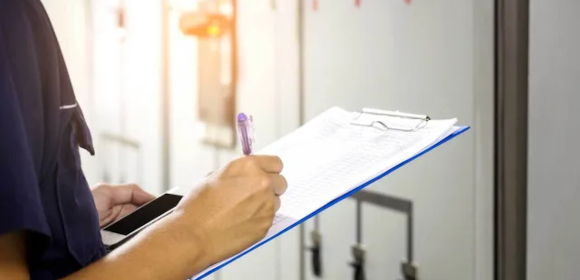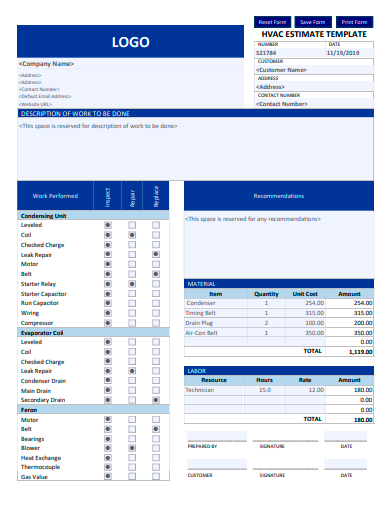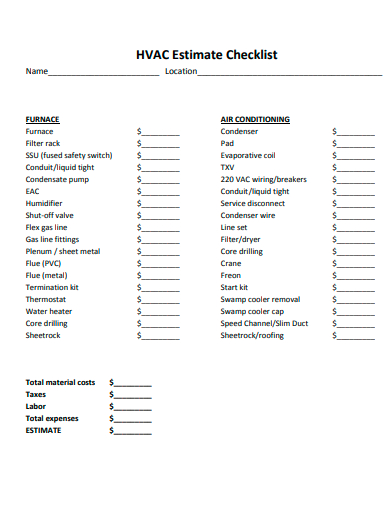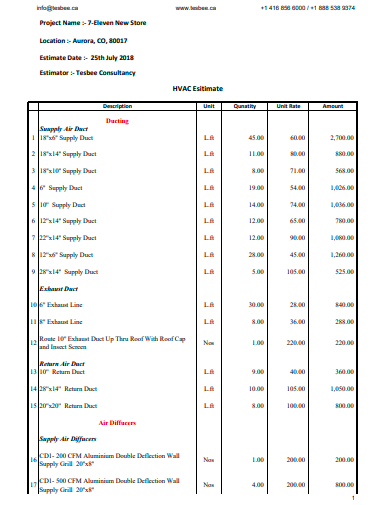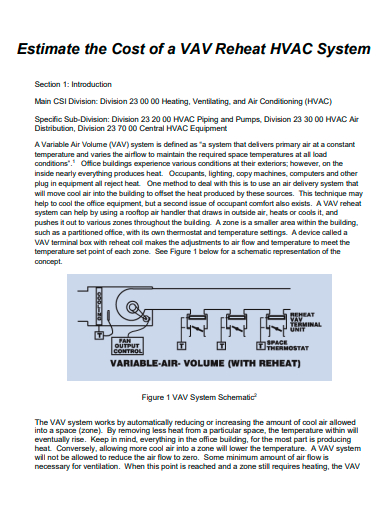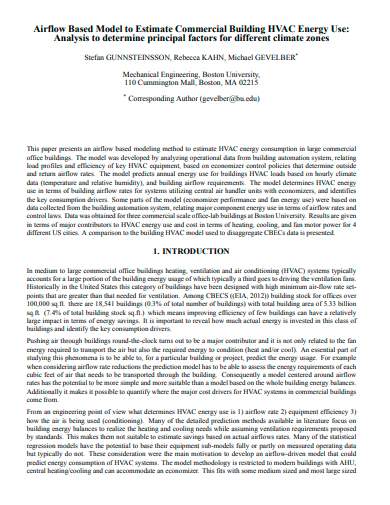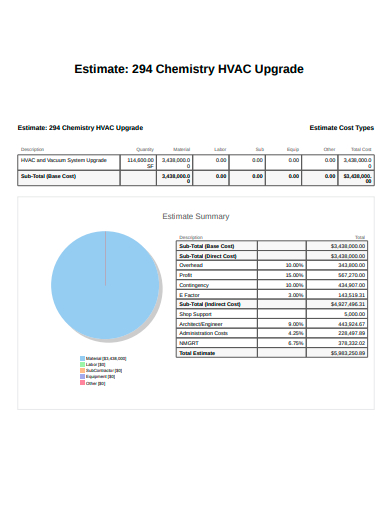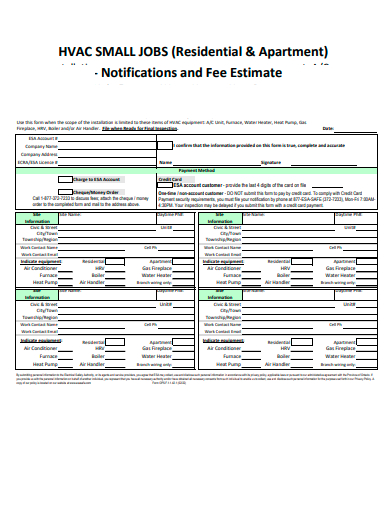An HVAC estimate samples should be comprehensive and take into account the specific needs and requirements of the building and its HVAC maintenance contract sample system. This includes factors such as the building condition survey samples, the type of HVAC system being installed or replaced, the complexity of the installation or replacement, and local codes and regulations. A good HVAC estimate should be transparent and clearly outline the costs associated with each aspect of the project scope samples, allowing the client to make informed decisions about their HVAC system.
FREE 6+ HVAC Estimate Samples
1. HVAC Estimate Template
2. HVAC Estimate Checklist
3. HVAC Estimate Example
4. Standard HVAC Estimate
5. Building HVAC Estimate
6. Chemistry HVAC Upgrade Estimate
7. HVAC Small Jobs Notifications and Fee Estimate
What is HVAC Estimate?
HVAC (Heating, Ventilation, and Air Conditioning) estimate refers to a detailed cost evaluation for the installation or replacement of an HVAC system. The estimate usually includes the cost of labor contract samples, material compliance statement, equipment report samples, and any necessary permits. An HVAC estimate is often used by homeowners or building owners to budget for HVAC upgrades or replacements. Besides, it is made together with an HVAC service provider contract sample to provide an accurate cost quote to clients.
How To Make an HVAC Estimate?
A comprehensive HVAC estimate is one that accurately reflects the cost of the project, taking into account all necessary materials, labor, and overhead costs. A good estimate is also transparent and clearly explains the basis for the cost calculation, so the client can understand what they are paying for. To make an HVAC estimate, you need to follow the following steps:
Step 1- Assess the Client’s Needs
Before you can estimate the cost of an HVAC project, you need to understand what the client wants. This includes the type of heating and cooling system they need, the size of the space to be conditioned, the desired temperature range, and any special requirements they may have.
Step 2- Measure the Space
Accurately measure the space to be conditioned, including the square footage, the height of the ceilings, and the location of windows and doors. This information is crucial for determining the size and capacity of the HVAC system required.
Step 3- Choose the Right Equipment
Based on the information you have gathered, select the HVAC equipment that is appropriate for the job. Take into consideration factors such as efficiency, reliability, and cost. et quotes from suppliers for the HVAC equipment and materials you need. This will give you an idea of the cost of the materials needed for the construction project planning checklist.
Step 4- Calculate Labor Cost
Estimate the number of hours needed for the installation, based on the complexity of the job and the experience of the workers. Then multiply that number by the hourly rate for HVAC technicians in your area to determine the labor cost. Finally, factor in any overhead costs, such as insurance investment contract, and add a profit margin to arrive at the final estimate.
How much does an HVAC estimate cost?
In most cases, an HVAC estimate is provided free of charge by a contractor or HVAC company. However, some contractors may charge a fee for an estimate, especially for larger or more complex projects.
How long does it take to get an HVAC estimate?
The time it takes to get an HVAC estimate can vary, but most contractors can provide an estimate within a few days of visiting the site and assessing the client’s needs.
What factors affect the cost of an HVAC estimate?
The cost of an HVAC estimate can be influenced by several factors, including the type of heating and cooling system required, the size of the space to be conditioned, the complexity of the installation, the cost of materials, labor costs, and any overhead costs.
An HVAC estimate is a critical tool for both homeowners and contractors when planning and budgeting for HVAC projects. It provides a clear understanding of the costs involved in an HVAC project, including the cost of materials, labor, and overhead. This information is essential for budgeting and making informed decisions about the project.
Related Posts
Weekly Schedule Samples & Templates
Contractual Agreement Samples & Templates
FREE 9+ Amazing Sample Church Bulletin Templates in PSD | PDF
Sample Business Card Templates
Sample Cashier Job Descriptions
Questionnaire Samples
FREE 10+ Sample HR Resource Templates in PDF
FREE 10+ HR Consulting Business Plan Samples in MS Word | Google Docs | Pages | PDF
FREE 49+ Sample Job Descriptions in PDF | MS Word
FREE 16+ Nonprofit Budget Samples in PDF | MS Word | Excel | Google Docs | Google Sheets | Numbers | Pages
FREE 13+ Academic Calendar Templates in Google Docs | MS Word | Pages | PDF
FREE 10+ How to Create an Executive Summary Samples in Google Docs | MS Word | Pages | PDF
FREE 23+ Sample Event Calendar Templates in PDF | MS Word | Google Docs | Apple Pages
Company Profile Samples
FREE 10+ Leadership Report Samples [ Development, Training, Camp ]
